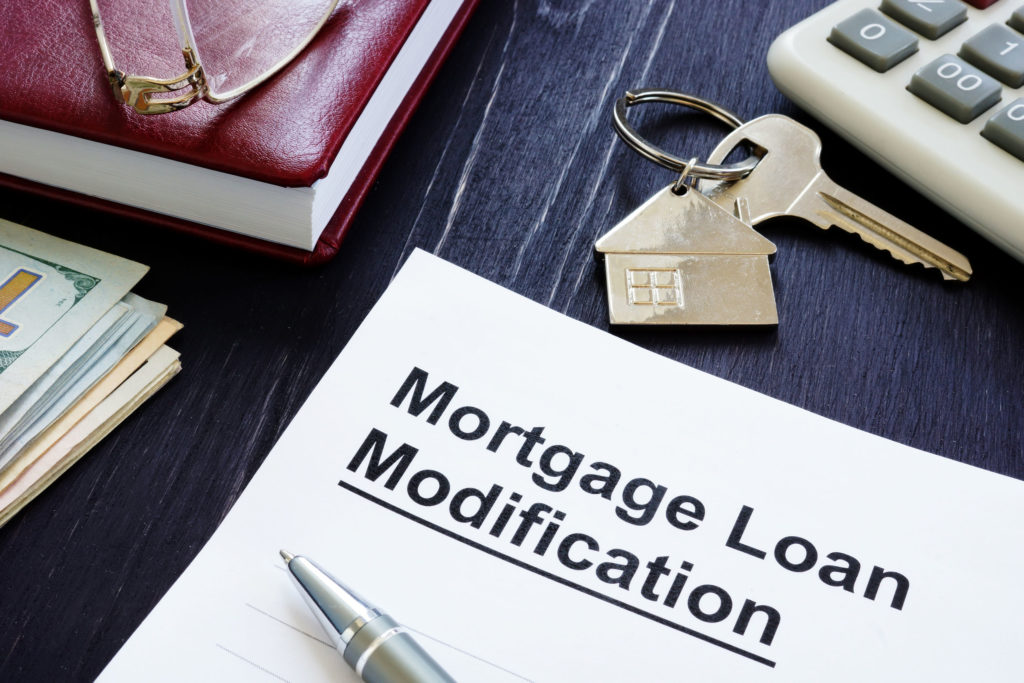Mortgage Loan Modification and Bankruptcy

If you have fallen behind on your monthly mortgage payments and are considering bankruptcy, you may also be wondering if you qualify for a mortgage loan modification. Learn how loan modification works in the context of a bankruptcy from the bankruptcy specialists at Lerner and Rowe Law Group.
What Is a Mortgage Loan Modification?
A mortgage loan modification is an agreement by a mortgage lender to change the terms of an existing mortgage loan, usually to help the borrower keep up with their monthly payments and avoid foreclosure. The terms of a mortgage loan can be changed or modified in various ways, including:
- Lowering the interest rate on the loan
- Extending the loan period
- Switching from an adjustable-rate to a fixed-rate loan
- Deferring or eliminating principal debt from the loan
- Allowing arrears to be paid at the end of the loan
In many cases, lenders prefer loan modifications as opposed to foreclosing on a home, which is more expensive for them in the long run. This gives borrowers who are falling behind on their payments an advantage when negotiating new terms for their existing loans.
Can I Get a Mortgage Loan Modification During Bankruptcy?
Sometimes, you may be able to utilize multiple strategies to help you settle your debts and save your home from foreclosure. In these cases, you may be able to obtain a mortgage loan modification during the bankruptcy process while under the protection of an automatic stay. Automatic stays in Arizona go into effect immediately when you file for bankruptcy and prevent harassment from creditors.
The two most common types of bankruptcy are Chapter 7 and Chapter 13. You may be able to qualify for a loan modification after a Chapter 7 or during a Chapter 13 bankruptcy, but choosing the most strategic and financially feasible bankruptcy type requires the prowess of a bankruptcy attorney who knows the ins and outs of bankruptcy proceedings.
Mortgage Loan Modification in Chapter 7 Bankruptcy
Because Chapter 7 bankruptcy focuses on liquidating your assets to pay off your creditors, keeping your home in this type of bankruptcy can be tricky. However, it is not impossible to save your home in Chapter 7 and get a mortgage loan modification.
There is nothing in bankruptcy law that prohibits you from modifying your mortgage loan within the context of a Chapter 7 bankruptcy, but keep in mind that in this kind of bankruptcy proceeding, your property will be under the control of a bankruptcy trustee for the duration of your case. This means that any mortgage loan modification has to be approved by your trustee.
Your loan lender likely will not proceed with a mortgage loan modification until it is clear that your trustee has no intentions of selling your home to pay off your debts, so you will probably not be able to secure your loan modification until the tail end of the bankruptcy or after the fact.
Mortgage Loan Modification in Chapter 13 Bankruptcy
Mortgage loan modification is most commonly done in a Chapter 13 bankruptcy. The goal of Chapter 7 is to discharge or eliminate the most debt possible. In a Chapter 13 bankruptcy, on the other hand, the primary goal is to restructure your existing debt into affordable monthly payments over the course of three to five years.
Mortgage loan modifications, then, are more in line with the goals of a Chapter 13 bankruptcy because your home is less likely to be sold to pay off creditors. Similarly to a Chapter 7 bankruptcy, a bankruptcy judge must approve any proposed mortgage loan modification to ensure that the terms are reasonable in conjunction with your proposed repayment plans for your other outstanding debt.
Contact a Lerner and Rowe Law Group Bankruptcy Attorney
If you’re ready to take control of your financial future and want to save your home from foreclosure, contact Lerner and Rowe Law Group today. An Arizona bankruptcy lawyer can review your financial details in a free consultation to help you determine if loan modification and bankruptcy are right for you.
For more information and to schedule your free consultation, contact one of our offices located conveniently in Phoenix (602-667-7777) and Tucson (520-620-6200). You can also talk to us online using our LiveChat feature, or send us your case details 24/7 by filling out our contact form.

